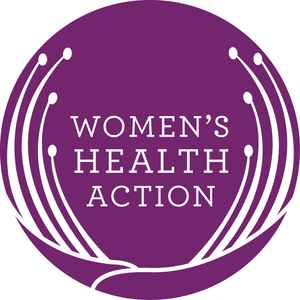In the first part of a new series in partnership with Women’s Health Action, Anna Beard looks at the effects of poor body image on our health and how to push back against those pressures.
Body image is a critical health issue, particularly for women and girls. Recent research has linked poor body image and body dissatisfaction with a higher risk of depression, bullying, eating disorders, reduced physical activity, poorer sexual health, diminished sexual negotiation, risk-taking behaviours including increased drinking and smoking, and lower self-esteem.
The results of the Youth 2012 Health and Wellbeing of New Zealand secondary school students survey provide valuable insight into how young people feel about their bodies and weight. They were shocking but not unexpected. A third of young women are unhappy or very unhappy about their weight, with the levels of unhappiness increasing in the later years of secondary school. Over one in 10 young men are also unhappy or very unhappy about their weight. The survey also identified high levels of weight-based bullying. Over a third of young women, and a quarter of young men, reported having been teased by others, including friends and family, about their weight.
Healthy attractive bodies come in many shapes and sizes, and physical appearance says very little about our character or value as a person. How we get to this point of acceptance often depends on our individual development and self-acceptance. We need everyone to come on board the positive body image train.
To get to that all important point of balance there are a few steps we can take.
Talk back to the media. All media and messages are developed or constructed and are not reflections of reality. So shout back. Speak our dissatisfaction with the focus on appearance and lack of size acceptance
De-emphasise numbers. Kilograms on a scale don’t tell us anything meaningful about the body as a whole or our health.
Stop comparing ourselves to others. We are unique and we can’t get a sense of our own body’s needs and abilities by comparing it to someone else
Question the degree to which self-esteem depends on our appearance. If we base our happiness on how we look it is likely to lead to failure and frustration and may prevent us from finding true happiness
Broaden our perspective about health and beauty by reading about body image, cultural variances, or media influence. Recognize that size prejudice is a form of discrimination similar to other forms of discrimination. Shape and size are not indicators of character, morality, intelligence, or success
Each of us will have a positive body image when we have a realistic perception of our bodies when we enjoy, accept and celebrate how we are and let go of negative societal or media perpetuated conditioning.
Women’s Health Action believes it is possible to support and celebrate positive body image and body diversity. It needs to happen on a number of levels.
We need to increase the understanding in the health, media, education and community sectors of the role body image has as a determinant of health and wellbeing. We want to build capacity, educating and resourcing schools, communities, media and the health and youth sectors to support and celebrate positive body image and diversity. We must advocate for an approach to health that is focused on wellbeing rather than weight and addresses weight and size based discrimination
But, we can’t do this alone.
So over the next six months, The Spinoff and Women’s Health Action are sharing stories about where things have gone wrong, the consequences, and the people presenting an alternative to the one that fills up our social media feed. The series will explore how social structures have created these pressures, and how they can be broken.
This content was created in paid partnership with Women’s Health Action. Learn more about our partnerships here.


